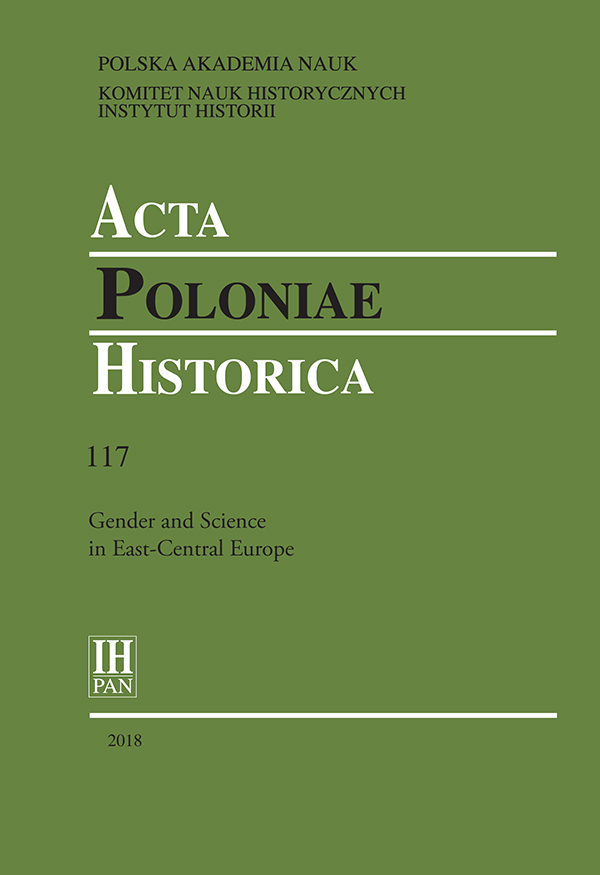Exclusion and Inclusion in the Legal Professions: Negotiating Gender in Central and East Central Europe, 1887–1945
DOI:
https://doi.org/10.12775/APH.2018.117.03Keywords
Comparative women’s legal history, history of the legal professions, women’s rights movements, gender discrimination, gender equality, women’s legal status, judges, attorneys, legal practice, citizenship, civil code reform, Central EuropeAbstract
This article examines the struggle by women to gain access to higher education opportunities in law and to secure the right to work in the legal profession between the 1880s through the 1940s in Central and East Central Europe. Activists challenged the exclusion of women from universities and the field of law by testing meritocratic and democratic principles or holding to account constitutional commitments to equality. The lawyers’ movement they subsequently created acted as a spearhead for the legal wing of the women’s emancipation movement that sought to reform women’s rights in national legislation and the civil codes. These processes were integral to the negotiation of gender roles in Central European countries from the late-nineteenth to the mid-twentieth centuries. Moreover, the rise of pan-European female lawyers’ associations illustrates the broader significance of these legal struggles. In the history of the women’s rights movements, the right to work in the legal professions and in civil service was also integral to the larger struggle for full citizenship rights.References
Bucur Maria, ‘Between Liberal and Republican Citizenship: Feminism and Nationalism in Romania, 1880–1918’, Aspasia, i, 33 (2007), 84–102.
Dadej Iwona, ‘“Die Frau von Morgen”. Frauenpolitisch tätige Akademikerinnen in Deutschland und Polen, 1918–1939’, PhD Freie Universität Berlin 2015.
De Haan Francisca, Krassimira Daskalova, and Anna Loutfi (eds.). A Biographical Dictionary of Women’s Movements and Feminisms. Central, Eastern, and South Eastern Europe, 19th and 20th Centuries (Budapest and New York, 2006).
Epstein Anne and Rachel Fuchs (eds.), Gender and Citizenship in Historical and Transnational Perspective (London, 2017).
Feinberg Melissa, Elusive Equality: Gender, Citizenship, and the Limits of Democracy in Czechoslovakia, 1918–1950 (Pittsburgh, 2006).
Kimble Sara L., ‘No Right to Judge: Feminism and the Judiciary in Third Republic France’, French Historical Studies, xxxi, 4 (Winter 2008), 609–41.
Kimble Sara L. and Röwekamp Marion (eds.), New Perspectives on European Women’s Legal History (New York, 2017).
Offen Karen (ed.), Globalizing Feminisms 1789–1945 (London, 2009).
Rodríguez-Ruiz Blanca and Rubio-Marín Ruth (eds.), The Struggle for Female Suffrage in Europe. Voting to Become Citizens (Leiden, Boston, 2012).
Röwekamp Marion, Juristinnen. Lexikon zu Leben und Werk (Baden-Baden, 2005).
Sulkunen Irma, Seija-Leena Nevala-Nurmi, and Pirjo Markkola (eds.), Suffrage, Gender and Citizenship – International Perspectives International Perspectives on Parliamentary Reforms (Newcastle, 2009).
Zimmermann Susan, ‘The Challenge of Multinational Empire for the International Women’s Movement: The Habsburg Monarchy and the Development of Feminist Inter/National Politics’, Journal of Women’s History, xvii, 2 (2005), 87–117.
Downloads
Published
How to Cite
Issue
Section
License
Title, logo and layout of journal are reserved trademarks of APH.Stats
Number of views and downloads: 664
Number of citations: 2



